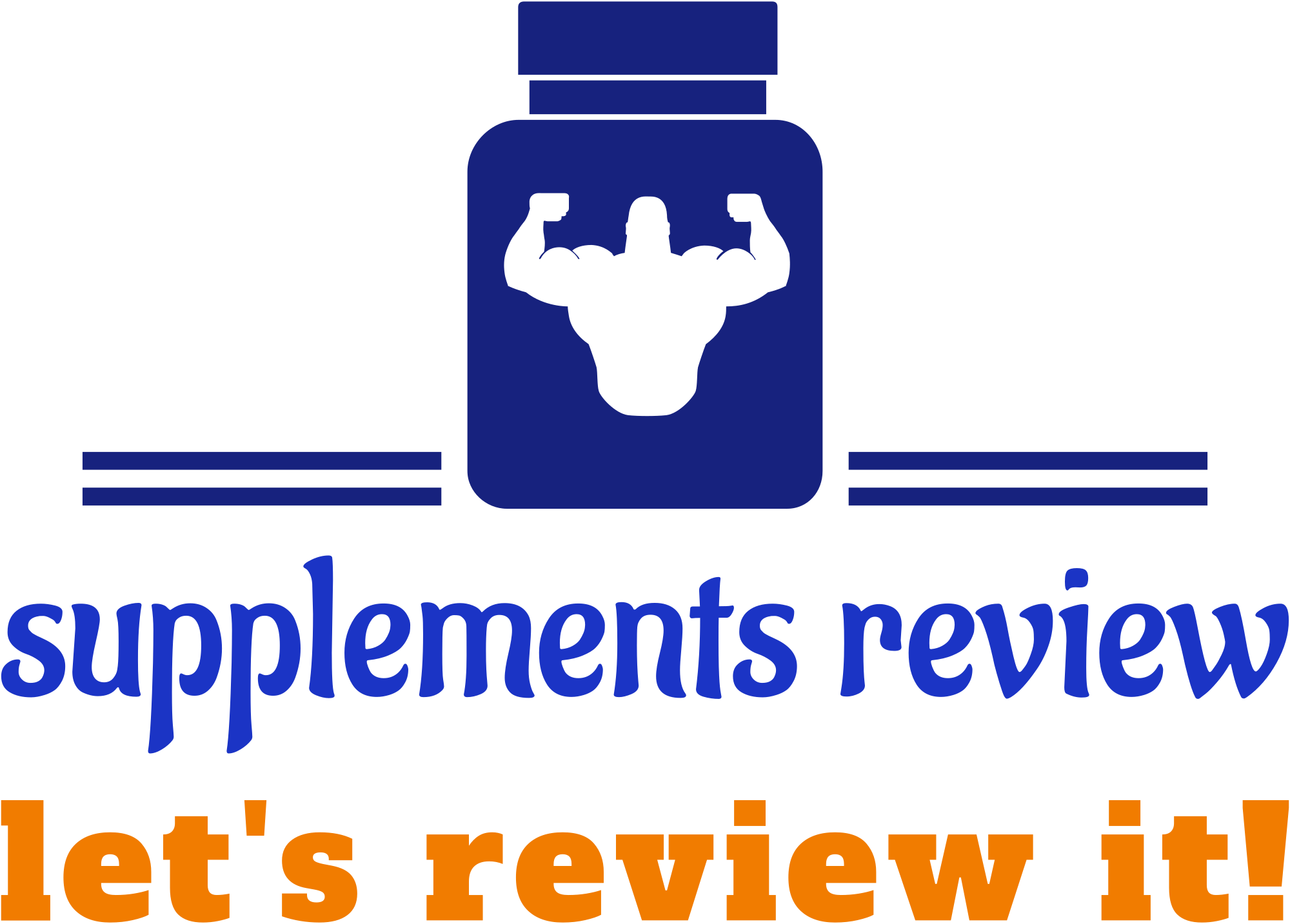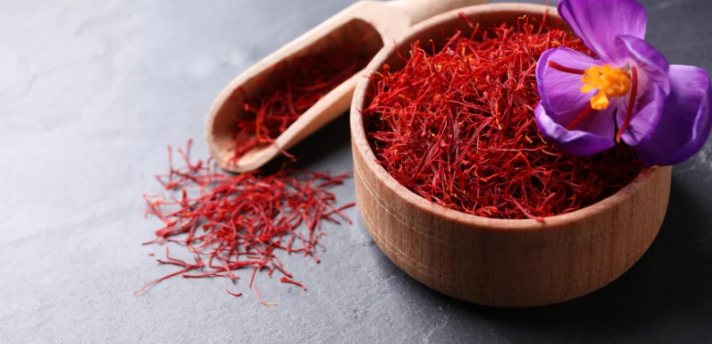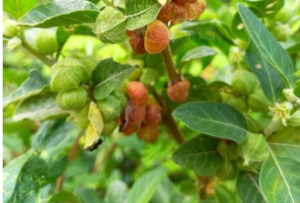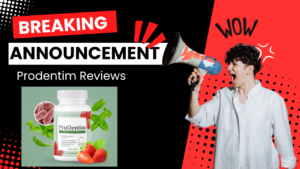The Potential Benefits of Saffron Extract for ADHD Management
Attention Deficit Hyperactivity Disorder (ADHD) affects many individuals of all ages, making daily tasks challenging. While traditional medications are commonly used for management, natural alternatives like saffron extract have gained attention for their potential benefits. Saffron, derived from the flower Crocus sativus, is renowned for its vibrant color, unique flavor, and numerous health benefits. Let’s delve deeper into how saffron extract might support ADHD management.
Understanding ADHD and Its Challenges
ADHD is characterized by symptoms such as inattention, hyperactivity, and impulsivity. These symptoms can interfere with work, school, and relationships. Individuals struggling with ADHD often seek various strategies to cope with their symptoms, which can include behavioral therapy, lifestyle changes, and medication. However, many are increasingly interested in natural remedies, leading to a growing discussion around saffron extract.
The Nutritional Value of Saffron
Saffron is packed with essential nutrients that might contribute to supporting brain health. Here are some of its key components:
- Crocin: This carotenoid is believed to have neuroprotective properties that may support cognitive function.
- Picrocrocin: Exhibits potential antidepressant effects that could help improve mood and reduce anxiety, common challenges for those with ADHD.
- Safranal: Known for its antioxidant characteristics, safranal can help combat oxidative stress, which is linked to neurological disorders.
Potential Benefits of Saffron Extract for ADHD
Research surrounding saffron extract’s impact on ADHD is still in its infancy, but preliminary studies suggest several potential benefits:
1. Mood Enhancement
Many individuals with ADHD experience symptoms of anxiety and depression. The mood-enhancing properties of saffron may help mitigate these feelings, allowing for better focus and emotional regulation. This dual effect can lead to a more balanced mental state, fostering an environment ideal for concentration.
2. Improved Attention Span
A small study indicated that saffron may help improve attention span in children diagnosed with ADHD. Participants showed observable enhancements in their ability to focus on tasks over time. While more extensive research is needed, this finding suggests that saffron could enhance attention management.
3. Reduced Hyperactivity
Some evidence points to saffron’s potential in diminishing hyperactive behaviors. By promoting a calm state of mind, saffron extract may reduce impulsive actions and help individuals navigate daily challenges more effectively.
4. Safety Profile
One of the significant advantages of using saffron extract is its generally favorable safety profile. Unlike some conventional ADHD medications that may cause adverse side effects, saffron typically causes minimal or no complications when taken at recommended dosages. This aspect makes it an appealing option for many, especially those concerned about medication side effects.
How to Incorporate Saffron Extract
If you’re interested in trying saffron extract, it’s essential to consult with a healthcare professional to ensure it’s suitable for you or your child’s needs. Here are a few ways to incorporate saffron extract into your routine:
- Add to Food: Saffron can be infused in dishes like rice, soups, or sauces for added flavor and health benefits.
- Saffron Supplements: Look for reputable brands offering saffron extract in capsule or liquid form for easy consumption.
- Tea: Saffron tea can be a soothing beverage that promotes relaxation while providing culinary delight.
Considerations and Precautions
While saffron extract shows promise, it’s crucial to approach any new supplement with caution. Start with small doses to see how your body responds. Be wary of potential interactions with other medications, especially those prescribed for ADHD. Always consult your healthcare provider before starting any new treatment regimen.
Saffron extract may hold potential benefits in managing ADHD symptoms, such as improving focus and reducing hyperactivity and anxiety. As research continues, saffron could emerge as a valuable natural alternative for those seeking relief from ADHD challenges. Stay informed and work alongside your healthcare provider to find the best approach tailored to your individual needs.
Understanding ADHD: Symptoms and Conventional Treatments
Attention Deficit Hyperactivity Disorder (ADHD) is a neurodevelopmental disorder that affects both children and adults. It is characterized by persistent patterns of inattention and/or hyperactivity-impulsivity that interferes with functioning or development. Understanding ADHD requires a closer look at its symptoms and the conventional treatment options available.
ADHD symptoms can vary widely from person to person. Some might struggle with attention, while others may find impulse control to be their largest hurdle. Here are the primary symptoms categorized into two main domains: inattention and hyperactivity/impulsivity.
- Inattention:
- Difficulty sustaining attention in tasks or play activities
- Frequent careless mistakes in schoolwork or other activities
- Difficulty organizing tasks and activities
- Avoiding or being reluctant to engage in tasks that require sustained mental effort
- Often losing things necessary for tasks and activities
- Being easily distracted by extraneous stimuli
- Forgetfulness in daily activities
- Hyperactivity/Impulsivity:
- Fidgeting with or tapping hands or feet
- Inability to stay seated in situations where it is expected
- Running about or climbing in inappropriate situations
- Inability to play or engage in activities quietly
- Talking excessively
- Blurting out answers before a question has been completed
- Difficulty waiting for one’s turn
Among these symptoms, inattention is often more prevalent in girls, while hyperactivity is more frequently noted in boys. This difference can lead to misdiagnosis or missed diagnoses, particularly in females who may display quieter symptoms.
Once ADHD is diagnosed, many parents and professionals often wonder about the most effective treatment options. Conventional treatments for ADHD typically fall into two main categories: medication and behavioral therapy. Understanding each of these can provide insight into managing this condition effectively.
Medication: Medications are often a primary method of managing ADHD symptoms and can be broadly divided into two categories: stimulants and non-stimulants.
- Stimulant medications:
- These are the most commonly prescribed and work by increasing dopamine levels in the brain, leading to improved focus and reduced impulsivity. Examples include:
- Methylphenidate (e.g., Ritalin, Concerta)
- Amphetamine salts (e.g., Adderall, Vyvanse)
- Non-stimulant medications:
- These can also be effective, particularly for those who do not respond well to stimulants or experience undesirable side effects. Examples include:
- Atomoxetine (Strattera)
- Guanfacine (Intuniv)
Behavioral Therapy: This approach focuses on modifying specific behaviors rather than prescribing medication. Techniques can include:
- Parent training in behavior management
- Classroom behavioral interventions
- Cognitive-behavioral therapy (CBT) aimed at helping individuals manage their thoughts and responses
In many cases, a combination of both medication and behavioral therapy is the most effective route. Every individual with ADHD is different, so it’s essential to work closely with healthcare providers to tailor a treatment plan that best fits their specific needs.
Managing ADHD successfully involves understanding not only the symptoms but also the treatment options. Awareness of the interplay between various therapeutic strategies and the personalized nature of treatment remains crucial in helping individuals lead successful and fulfilling lives despite the challenges posed by ADHD.
By recognizing the diverse symptoms and embracing a multifaceted approach to treatment, individuals can work towards improving their focus and overall quality of life.
How Saffron Extract Works: The Science Behind Its Effects
Saffron extract has gained attention for its potential health benefits, particularly in the realm of mental well-being. Notably, many are curious about how saffron extract works, especially regarding its effects on attention deficit hyperactivity disorder (ADHD) and overall cognitive health. Understanding the science behind saffron extract can help you appreciate its value in various health applications.
Saffron, the vibrant spice derived from the Crocus sativus flower, contains numerous active compounds that contribute to its effects. Among these, the most significant are:
- Crocin: This carotenoid compound is primarily responsible for the distinctive color and some of the therapeutic properties of saffron. Crocin has been shown to have antidepressant and anti-anxiety effects.
- Croctin: Related to crocin, croctin also plays a key role in neuroprotection and boosting cognitive performance.
- Safranal: This compound contributes to saffron’s aroma and may provide neuroprotective benefits, thus enhancing the overall cognitive functioning.
The interaction of these compounds with the human body is crucial for understanding saffron extract’s impacts, particularly in relation to mental health disorders like ADHD. Research suggests that saffron extract acts on key neurotransmitters associated with mood and focus.
One major way saffron extract influences mental health is through its ability to increase serotonin levels in the brain. Serotonin is a neurotransmitter that significantly affects mood and behavior. By enhancing serotonin production, saffron extract can help alleviate symptoms of anxiety and depression, common co-occurring issues with ADHD. This mood stabilization can enable individuals with ADHD to concentrate better and manage their impulsivity.
Additionally, saffron extract exhibits antioxidant properties, which are essential for protecting the brain from oxidative stress. Oxidative stress refers to the imbalance between free radicals and antioxidants in your body, potentially leading to cell damage. The protective effects of saffron can enhance neuronal health, which is particularly beneficial for those with ADHD, where cognitive function may be compromised.
Clinical studies have begun exploring saffron extract’s effectiveness in addressing ADHD symptoms. Some trials have demonstrated promising results, showing a reduction in hyperactivity and improvement in attention span among children taking saffron extract. In some cases, saffron has been compared to standard ADHD medications, with researchers noting fewer side effects in subjects using the herbal extract.
To understand the dosage and application of saffron extract for ADHD or cognitive improvement, it’s essential to consider a few key points:
- Dosage: Most studies indicate a safe and effective dosage range, usually between 20 mg to 30 mg per day. However, you should consult with a healthcare provider before starting any supplementation.
- Form: Saffron extract is available in various forms, such as capsules, powders, and teas. Capsules may provide a more concentrated dose, while teas can offer a gentler introduction to saffron’s benefits.
- Combine with Lifestyle Changes: To maximize the benefits of saffron extract, consider incorporating other healthy lifestyle changes such as regular exercise, a balanced diet, and mindfulness practices.
While saffron extract presents an exciting natural option for managing ADHD symptoms, it’s important to approach it mindfully. Personal experiences may vary, and what works wonderfully for one individual might not show the same effectiveness in another. Having open discussions with a healthcare professional ensures a tailored approach that suits your specific needs.
Understanding how saffron extract works can empower you in your quest for mental well-being. Its unique properties make it a valuable addition to both therapeutic practices and everyday health routines, especially for those grappling with ADHD. Consequently, considering saffron extract may offer a complementary approach to improving cognitive function and emotional balance.
Saffron extract offers exciting prospects for enhancing mental well-being, especially for individuals with ADHD. As research continues to evolve, the understanding of its mechanisms will shed more light on its therapeutic potential.
Comparing Saffron Extract to Traditional ADHD Medications
Attention Deficit Hyperactivity Disorder (ADHD) is a common neurodevelopmental disorder that affects millions of children and often persists into adulthood. Traditional treatments typically include medications such as stimulants like methylphenidate or amphetamines. These medications can be effective, but they come with potential side effects and may not be suitable for everyone. As a result, many people are looking for alternative treatments, including saffron extract, to manage ADHD symptoms. In this article, we’ll compare saffron extract to traditional ADHD medications.
Saffron extract is derived from the flower of Crocus sativus, known commonly as the saffron crocus. It has been used for centuries in traditional medicine due to its potential health benefits, which include mood enhancement and cognitive support. Recent studies have shown promising results in using saffron extract for reducing ADHD symptoms.
Effectiveness
Research suggests that saffron extract may be effective in managing ADHD symptoms. In one clinical trial, children diagnosed with ADHD showed a reduction in hyperactivity and improvement in attention when given saffron extract. This is likely due to saffron’s ability to increase levels of neurotransmitters like dopamine and serotonin, which are crucial for focus and mood regulation.
In contrast, traditional ADHD medications work primarily by increasing the availability of certain neurotransmitters in the brain, mainly norepinephrine and dopamine. While stimulants can offer rapid and significant improvement in symptoms, their effects can vary from person to person. Some individuals may experience rebound effects when the medication wears off, leading to a cycle of reliance on the drug.
Side Effects
One of the most significant advantages of saffron extract is its safety profile. While saffron is generally well-tolerated, potential side effects can include dizziness, dry mouth, or gastrointestinal upset. These are typically mild compared to the side effects associated with traditional ADHD medications, which can include:
- Insomnia
- Anxiety
- Appetite suppression
- Increased heart rate
For many individuals, these adverse effects of conventional medications can lead them to seek alternative options like saffron extract.
Accessibility and Cost
Saffron extract is available in various forms, including capsules, tinctures, and powdered form. It can be easily found in health food stores and online. The cost of saffron extract can vary, but it is generally more affordable than many pharmaceutical options, especially for those without insurance. Traditional ADHD medications tend to be more expensive, and pricing can vary significantly based on the prescription and insurance coverage.
Long-term Use
Another critical aspect to consider is the long-term use of these treatments. Traditional ADHD medications often require ongoing use for optimal effectiveness, and this can raise concerns about dependency and tolerance over time. In contrast, saffron extract may offer a more sustainable option for symptom management, as it does not carry the same risks of dependence. Some users report persistence of benefits even after stopping the supplement, although more research is needed in this area.
Combination Therapy
For those who find traditional medications unsuccessful or intolerable, saffron extract is an excellent option that may be used in conjunction with other therapies. Behavioral therapies, lifestyle changes, and dietary modifications play a crucial role in managing ADHD. saffron extract into a holistic approach could potentially enhance overall well-being, addressing aspects of the disorder comprehensively.
Consultation with Healthcare Professionals
If you’re considering saffron extract for ADHD, it is essential to consult with healthcare professionals. They can help you tailor a treatment plan that suits your specific needs. Combining traditional medicine with alternative treatments like saffron can lead to optimal results and improve quality of life.
Both saffron extract and traditional ADHD medications have their merits and drawbacks. Saffron offers a natural alternative with a favorable side effect profile and potential effectiveness in managing symptoms. However, it is crucial to perform thorough research and engage with healthcare providers to determine the best approach for individual circumstances. Balancing these options effectively could pave the way for managing ADHD symptoms in a safer and more holistic way.
Personal Experiences: Testimonials on Saffron Extract for ADHD
There is growing interest in natural remedies for ADHD, and saffron extract is making headlines. Many individuals seeking alternatives to traditional medications have shared their experiences with saffron, highlighting its potential benefits. Let’s explore what some people are saying about using saffron extract for ADHD management.
A 35-year-old mother, Sarah, shared her testimony about her son’s experience with ADHD. “After trying various medications with little success, I stumbled upon saffron extract while researching natural treatments online. We decided to give it a shot. Within a few weeks of starting the supplement, I noticed a significant change in his attention span and mood. He seemed calmer and more focused during homework time.” Her story underscores how individuals often embark on a quest to find what works best for their children, and natural supplements like saffron extract are worth considering.
Another anecdote comes from Mark, a college student navigating ADHD. He described his journey: “I’ve tried prescription meds before, but the side effects were tough to handle. I read about saffron extract and its potential for cognitive enhancement. After using it for a month, I felt more engaged in my classes. It’s not a miracle cure, but it has definitely made a positive impact on my concentration.” Mark’s experience sheds light on the trials and tribulations faced by many adults dealing with ADHD symptoms and how they lean towards natural solutions.
For those curious about dosages, it’s essential to learn from others. Jennifer, another enthusiastic user, provided insight into her routine: “I take saffron extract in the morning with my breakfast. I read that the recommended amount for ADHD is around 30 mg daily. I started with a lower dose and worked my way up, and I think that was the right way to go.” This gradual approach may help new users to assess their tolerance more effectively without overwhelming their system.
Some testimonials highlight the experiential differences in community and social settings. A father, Lucas, recounted how saffron has benefited his son socially: “Before, my son was always easily distracted in social gatherings, which led to awkward moments. Since incorporating saffron extract, he seems to engage more with his friends and stay involved in conversations. It’s heartwarming to see him flourish socially.” This dimension of the experience reminds us how ADHD can influence not just academic performance but personal relationships too.
However, it is vital to approach saffron extract with an open mind. Some users reported mixed feelings. Emma shares a balanced view: “I tried saffron extract after hearing rave reviews, but I didn’t feel much change. It’s not harmful, and I’m glad to have tried it, but I’m moving back to topical therapies. Everyone’s body reacts differently, so what works for others may not be my answer.” Emma’s candor emphasizes the importance of individual differences in treatment responses, serving as a reminder that one remedy won’t suit everyone.
Here are a few common themes that emerge from many testimonials regarding saffron extract for ADHD:
- Improved Concentration: Many users reported enhanced focus and attention spans after incorporating saffron into their routine.
- Reduced Hyperactivity: Parents observed noticeable declines in hyperactive behavior in their children.
- Better Mood Regulation: Users often mentioned improvements in overall mood, leading to less frustration and irritability.
- Social Improvements: Many individuals found they could engage better in social settings, enhancing relationships.
The testimonials shared aren’t just isolated stories; they illustrate a broader movement toward natural options. It’s essential to remember that while many are sharing their positive experiences with saffron extract, personal research and consultation with healthcare professionals should remain a foundational part of any treatment choice. A balanced approach considers potential benefits and limitations, ultimately contributing to informed decision-making for managing ADHD.
Support groups and forums can also be excellent resources for real-life accounts. They provide a sense of community and understanding for those on similar journeys. As you explore the possibilities of including saffron extract in your regimen, it may help to connect with other users for insights and encouragement.
Personal experiences reported from saffron extract usage offer valuable: stories that highlight real improvements in focus, mood, and social relationships. However, as you consider this option, it’s vital to weigh these testimonials against professional advice, fostering a thoughtful integrated approach to ADHD management.
Conclusion
The exploration of saffron extract as a potential aid in managing ADHD reveals promising insights for those seeking alternative solutions. With ADHD symptoms such as inattention, hyperactivity, and impulsiveness affecting countless children and adults, understanding effective management strategies is crucial. Traditional treatments often include stimulants, which can work well but may come with a range of side effects. This is where saffron extract enters the conversation, providing a natural alternative that some studies suggest might help improve focus and overall behavior without the drawbacks of conventional medications.
Delving into the science behind saffron extract, researchers are uncovering compounds within it that may regulate mood and enhance cognitive function. This opens new avenues for those who are sensitive to standard ADHD medications or prefer a holistic approach. Moreover, personal testimonials from individuals who have incorporated saffron extract into their routines paint a vivid picture of positive experiences, contributing to the credibility of its potential benefits.
For parents and individuals seeking to navigate the complexities of ADHD management, saffron extract could offer a complementary option to traditional therapies. It’s essential, however, to consult healthcare professionals before making any changes to treatment plans. Ultimately, together with ongoing research and a growing pool of anecdotal evidence, saffron extract stands as a hopeful prospect in the journey toward better ADHD management, empowering individuals to find what works best for their unique needs.




